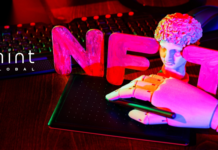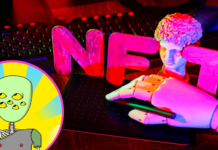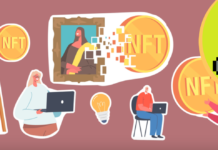 To his millions of followers around the world, Sean Seshadri is one of the world’s leading financial experts. What few people know about the financial expert and cryptocurrency investor is his history. He attended the prestigious Weill Medical School at Cornell University and began his career as a physician. In recent years, Seshadri has grown a huge digital following of investors looking to follow in his footsteps by taking control of their financial future.
To his millions of followers around the world, Sean Seshadri is one of the world’s leading financial experts. What few people know about the financial expert and cryptocurrency investor is his history. He attended the prestigious Weill Medical School at Cornell University and began his career as a physician. In recent years, Seshadri has grown a huge digital following of investors looking to follow in his footsteps by taking control of their financial future.
Seshadri has developed his skills in a range of markets including the Forex, Futures, and cryptocurrency sectors. What is most impressive about the transition of Sean Seshadri from physician to financial expert is the fact he is mostly self-educated and has built his financial expertise on the back of his self-taught strategies. Seshadri not only writes blogs to help others build their expertise as traders but also established his own investment companies. Despite a lack of formal education in economics, Sean Seshadri has been invited to academic institutions and world-renowned financial companies to advise on his trading methods.
How did you get started with cryptocurrency?
I’m the first to admit I was not the first investor to jump on the cryptocurrency bandwagon. I was intrigued by the launch of Bitcoin in 2009 and would still like to know if Satoshi Nakamoto is a real person or pseudonym. I waited a couple of years, and when the first cryptocurrency dip happened, I decided the time was right to buy some coins. I have not limited my trading to Bitcoin but also looked into the profitability of many altcoins. To be honest, I believe more in the future of the Blockchain than I do in cryptocurrency. Although, my level of confidence is growing in cryptocurrency because I feel the market will stabilize in the coming years.
When did you decide blockchain tech was here to stay?
Blockchain is the part of cryptocurrency I have been drawn to as a much-needed part of the financial markets. I read the White Paper released by Satoshi Nakamoto in 2009 and immediately saw the possibilities of using Blockchain in everyday life. Putting Blockchain into practice has proven a little more difficult than I imagined it would with a few security breaches. However, I still retain the confidence I had in this technology in 2009.
What do you see in the future for Bitcoin?
Bitcoin remains the gold standard for cryptocurrency developers and I believe will retain this position in the future. I understand the initial development of Bitcoin was a reaction against the consistently unfair regulation of the markets. However, in my opinion, the days of cryptocurrency regulation are not too far away with the government of Belgium already exploring possibilities. Bitcoin itself has been through something of a rollercoaster ride of highs and lows. The fall in the price of mid-2018 will prove to be one of the last major troughs for the Bitcoin markets with a period of stability to follow.
What’s one thing you’ve learned since you got started with digital currency?
How do I limit this to just one thing I have learned over the last few years? I believe the most important lesson I have learned is the fact the digital sector is fast-moving and can see offerings disappear in a matter of days. I have made investments in initial offerings only to see the company behind the creation of tokens fold less than two months later. Overall, I now take a slow and steady approach to developing my cryptocurrency investments as I have been stung a few times by investing on the ground floor.
What’s your biggest pet peeve about digital currency?
I think the snobbish attitude of some established traders in the markets who fail to see the world is changing all the time. Digital currency is here to stay and to fight against it is like holding back the sands of time, impossible to achieve. Some of the financial experts I have admired and spoken with on many occasions seem to be battling against the rise of cryptocurrencies purely through a lack of understanding. For traders, it should not be too difficult to understand an investment made in something which cannot be held in their hands because this is what we do every day. Hopefully, major financial institutions which currently ban digital currency trades will change their attitude in the next few years to give cryptocurrency even more credibility.
Connect with Sean Seshadri on LinkedIn to get more financial and crypto tips.



































